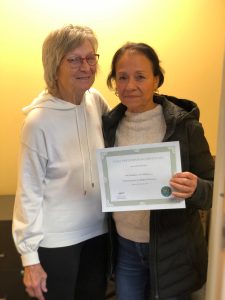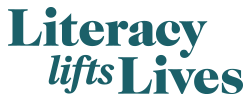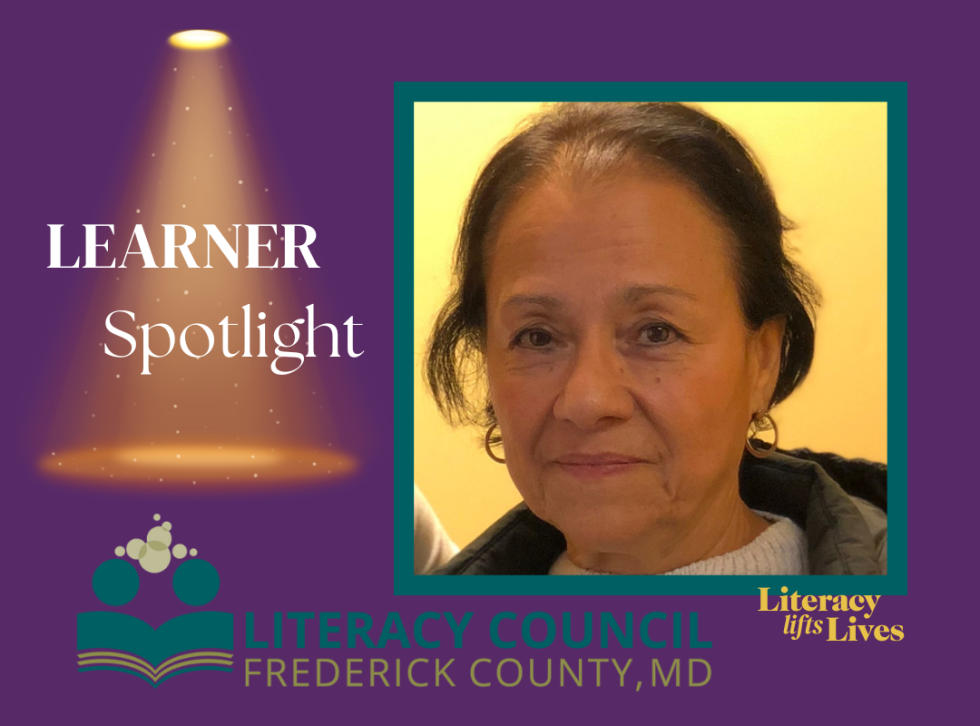Esperanza’s Story
When Esperanza left an 18-year career as a family doctor at a children’s hospital in Cale, Columbia to move to the United States, it was just the beginning of a second career in community health care and advocacy. But she didn’t know it at the time – just like she also had no idea that she’d wind up in here in Frederick, taking English classes with us at the Literacy Council.
Esperanza had lived her entire life in Cale, Columbia’s third-largest city, located about 2 hours from the Coast.
She loved it there.
“It’s a beautiful city,” Esperanza said. “The weather is warm, everybody in my city dances salsa – it’s the principal dance – they dance everywhere.”
But in 2005 her daughter, who has muscular atrophy and was living in Massachusetts, got in a car wreck. That’s when she knew she was needed in the U.S.
Esperanza’s daughter is just as driven and independent as she is: despite having muscular dystrophy since she was 14 and using a wheelchair, she’d attended college at the Methodist University in North Carolina, then married and settled down. She currently works as a grant specialist and administrator at the National Institutes of Health.
“She had an accident because she was driving her car,” Esperanza said. “I moved here because I told her she needed my help.”
So Esperanza took an early retirement at 50, said goodbye to her mother and even her husband, who is an attorney, and moved to the United States. She misses her family and her native city, but she’s never regretted the decision. She knows her daughter needs her here.
Instead, she’s thrown herself into health care in the U.S.
She started when she moved with her daughter to Rhode Island. Esperanza was shocked to discover how much of the Latino community there did not have access to health care.
“I was astonished about the lack of information that Latino people in the community had,” Esperanza said. “That was my big surprise. In my mind I thought the system was different, that everyone had the possibility to have insurance.” Galvanized by the lack of resources in her community, Esperanza jumped back into health care. She started several health clinics, then got her worker visa and worked in hospice part time while continuing to serve and educate the Latino community in Rhode Island.
Then she and her daughter moved here to Frederick, where Esperanza’s sister lives. Her daughter took a position at NIH, and Esperanza picked back up in health care advocacy for the local Latino community.
“I started working at a clinic La Clinica Puebla in Washington, D.C., as a health educator, and then the Kaseman Health Clinic in Broadview,” Esperanza said. “I worked with a Latino population in many programs, educating people, coordinating the health educators.”
She continued this work until the pandemic struck in 2020, and she had to stay home for health reasons.
But even then Esperanza wasn’t finished providing health care. She got trained as a nutritional health coach and now provides online education for people looking to improve their diets and lifestyle to deal with health conditions like diabetes and blood pressure.
She targets the Latino population, and because it’s online she works with people in Maryland, but also back in Columbia – bringing her work full circle.
It’s meaningful for Esperanza to be once again providing health care to Columbians, but she doesn’t think she’ll move back anytime soon. The government there is too unstable, she said, and healthcare too unreliable.
So she’s investing even more in her life here in Frederick by taking English classes with us at the Literacy Council.
Esperanza had spent so much of her life faithfully serving the Latino community that she hadn’t had the opportunity to develop her English-speaking stills.
Now, she says, she finally has the time.
She’s taking them online to fit in with her schedule and so she can stay at home.
“I like to improve my conversational English,” Esperanza says. “I can understand and speak in English, I can read articles, but I had difficulty to have conversation. I want to be fluent in English.”
She’s seen improvement in her English speaking skills over the several courses she’s already taken with us.
“I notice changes. Before, I avoid to speak because I don’t want to make a mistake, but now I feel more free to start a conversation without worrying to make a mistake.”
She enjoys her classes too. Recently she had fun researching and preparing for a class presentation about the flora in Columbia, focusing on an area near the Amazon rainforest.
After working so hard to help others access the healthcare they need, Esperanza is investing in herself. We’re so glad to be part of that process – and can’t wait to see what inspiring project she takes on next.



